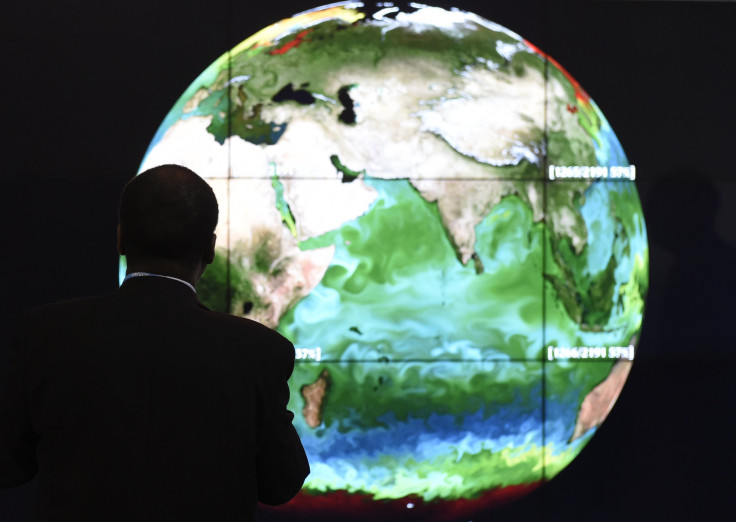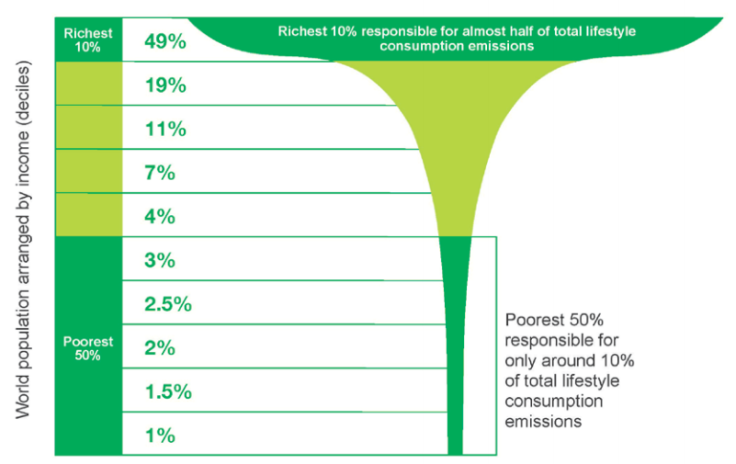Climate Change: Richest 10% Responsible For Nearly Half Of World’s Carbon Emissions

When it comes to climate change, inequality remains the reigning theme. Even as world leaders in Paris seek to hammer out a deal acceptable to both rich and poor nations during the two-week COP 21 summit, a new report by Oxfam International, released at the talks Tuesday, highlights the magnitude of the difference in greenhouse gas emissions by the so-called “haves” and “have-nots.”
According to the report, titled “Extreme Carbon Inequality,” the world’s richest 10 percent account for nearly half of all global carbon emissions, while the poorest half of the world -- approximately 3.5 billion people -- contribute only 10 percent.
“Climate change and economic inequality are inextricably linked and together pose one of the greatest challenges of the 21st century,” Tim Gore, Oxfam’s head of food and climate policy, said, in a statement. “Paris must be the start of building a more human economy for all – not just for the ‘haves,’ the richest and highest emitters, but also the ‘have-nots,’ the poorest people who are the least responsible for and most vulnerable to climate change.”

The report also found that on average, the richest 1 percent of the world’s population, which owns nearly half of the world's wealth, emits 175 times more carbon than someone from the bottom 10 percent.
In India -- which has long stuck to the principle of “common but differentiated responsibility” in dealing with climate change -- the emissions of someone in the poorest half of the population are, on average, just one-twentieth those of someone in the poorest half of the American population. Also, someone in the richest 10 percent of India's citizens uses on average just one quarter of the carbon of someone in the poorest half of the population of the U.S.
“Rich, high emitters should be held accountable for their emissions, no matter where they live. But it’s easy to forget that rapidly developing economies are also home to the majority of the world’s very poorest people and while they have to do their fair share, it is rich countries that should still lead the way,” Gore said, in the statement.
Despite significant progress in other areas, rich and developing nations remain deeply divided over the issue of “differentiation” -- which refers to how responsibility for curbing greenhouse gas emissions should be divided. Developing countries, led by India, say that their richer counterparts should shoulder a bigger obligation for cutting back. However, most rich nations, led by the U.S., have consistently refused to agree to such a “bifurcated” approach.
“The principle of common but differentiated responsibilities should be the bedrock of our collective enterprise. Anything else would be morally wrong,” Indian Prime Minister Narendra Modi recently wrote, in an opinion piece for the Financial Times.
© Copyright IBTimes 2024. All rights reserved.






















